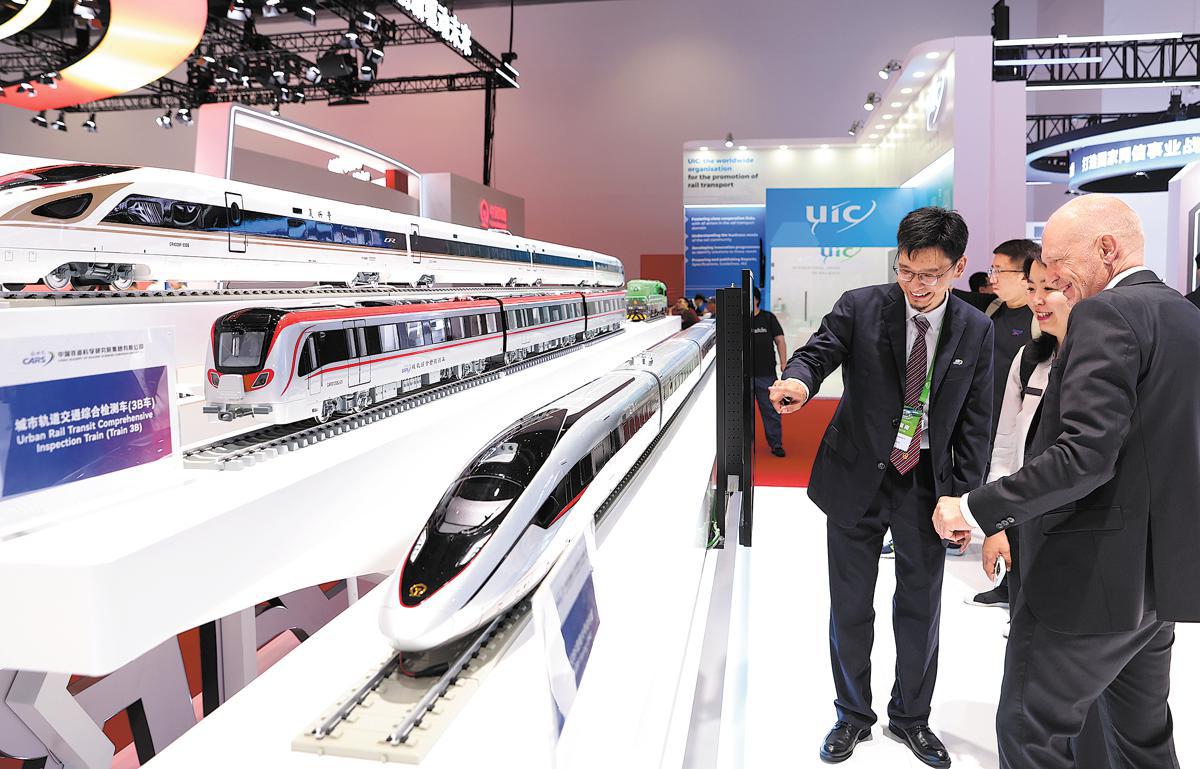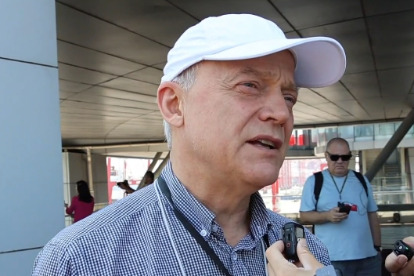Country's high-speed rail network wins intl praise


International railway leaders applauded the development of China's high-speed rail network, as industry officials gathered in Beijing for the 12th World Congress on High-Speed Rail, which runs from Tuesday to Friday.
"China, with over two-thirds of the world's operational high-speed network, is a global leader and a source of inspiration," said Alan Beroud, chairman of the International Union of Railways, or UIC, the abbreviation for the organization's name in French. "In less than two decades, China has created the largest and most advanced high-speed rail system in the world, reshaping mobility, the economy and regional development."
Beroud made the remarks at the opening ceremony of the world congress, which serves as a key platform for showcasing innovation, fostering international cooperation and exchanging ideas in the rapidly evolving high-speed rail industry.
Co-hosted by China State Railway Group and the UIC, the congress features main sessions, roundtable forums, technical exchanges and the 17th China International Modern Railway Technology and Equipment Exhibition.
Speaking at the opening ceremony, Wang Lixin, vice-president of China State Railway Group, emphasized the country's commitment to high-quality growth. By the end of 2024, China's high-speed rail network had expanded to 48,000 kilometers — more than 70 percent of the global total — and now connects 97 cities that have populations over 500,000, Wang said.
He also highlighted key projects such as the Beijing-Shanghai line, which enabled four-hour travel between the two major economic hubs, and the Harbin-Dalian line, which operates year-round through regions with extreme winter temperatures, demonstrating the system's resilience and engineering strength.
UIC Director-General Francois Davenne noted that China's network is expected to exceed 50,000 kilometers by the end of this year.
"By effectively linking major cities, China's high-speed rail is driving national cohesion and unlocking new opportunities for social and economic development," he said.
Bertrand Minary, the UIC's passenger director and coordinator for the Middle East and Latin America, praised both the comfort and technological sophistication of China's high-speed rail service.
"What stands out is how each generation of Chinese high-speed trains continues to improve," he said.
Ulan Kulov, deputy general manager of China-Kyrgyzstan-Uzbekistan Railway Co, described his journey from Nanjing to Beijing as "fast, smooth and comfortable". He called China the "undisputed leader in high-speed rail technology" and noted that the country's openness to sharing its expertise could help accelerate development in other regions.
"China's experience is a valuable asset to the global railway community," he added.
The first high-speed rail world congress was held in 1992, and the gathering has been convened every two to three years since. This year's congress marks the second time that China has hosted the event, the first being in 2010. With more than 65,000 kilometers of high-speed lines now in operation globally, industry leaders stressed the importance of continued international collaboration.
"High-speed rail is much more than a fast mode of transport. It's a key driver of sustainable development, technological innovation and global connectivity," said Beroud, the UIC chairman. "It is expanding, diversifying, adapting and accelerating. It has become a global project for the common good — at the intersection of engineering, sustainability, territorial development and social equity."
- Country's high-speed rail network wins intl praise
- Thousands of PLA personnel deployed to flood-hit Rongjiang
- China's largest weapons manufacturer appoints new chairman
- Greater Bay Area rail passenger flows surge
- Shanghai exhibit hails role of Flying Tigers in liberating China
- Wuxi fishery base makes a splash during APAC officials' visit





































